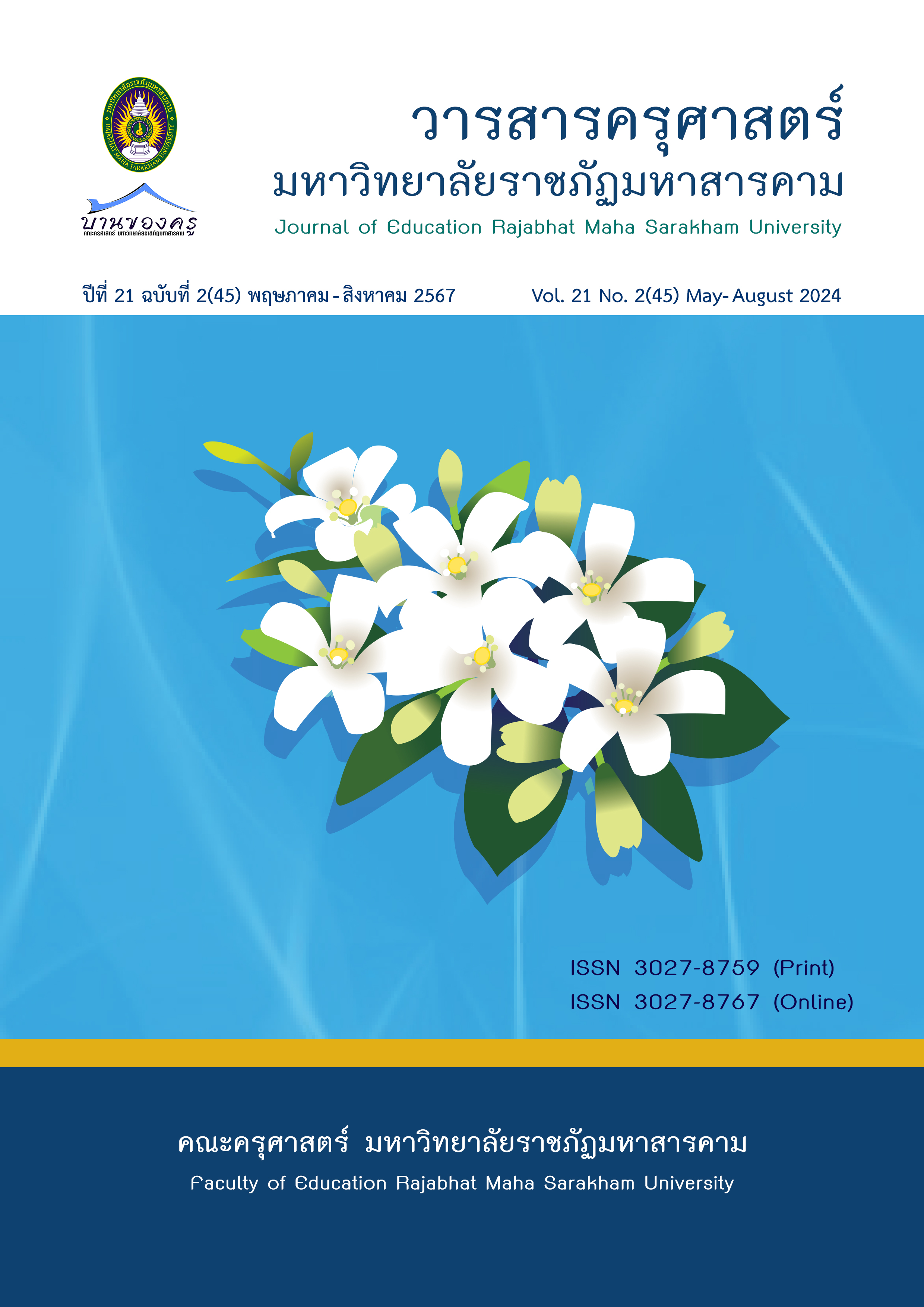Learning Management to Enhance the Learners’ Self-Esteem
Main Article Content
Abstract
Education is an instructional process of continuing growth to be a completed human being. The instruction needs to design for human development in various domains concurrent with teaching practice. According to the psychology development, the five domains of learners’ development are emphasized; physical development, emotional development, social development, cognitive development and ethics development, for the learners all round development. Therefore, the instruction could not only conveying the learners’ knowledge but must be improved their desirable characteristics at the same time. The only knowledge could not guarantee the success of learners in their future lives because their living life must be taken into account with other people and environments that requires adaptation. One of the most important things for the learners is “self-esteem” which enables them to understand themselves first, then become self-awareness, following by optimistic and worldly-wise. Besides being self-esteem, more than understand themselves, the learners will understand the surrounding context. These persuade them to have self-love, self-worth, then finally become their behavior and choosing wisely in life. When these characteristics happen, the learners would be aware in decision making and living their life carefully. The desirable characteristics would begin at the learners and spread out to the others in term of respecting and valuing the others. These facilitate the societies to be the well-being societies.
Article Details

This work is licensed under a Creative Commons Attribution-NonCommercial-NoDerivatives 4.0 International License.
ข้อกำหนดเบื้องต้นที่ผู้นิพนธ์(ผู้ส่งบทความ) ควรทราบ
1. ผู้นิพนธ์ที่ประสงค์จะลงตีพิมพ์บทความกับวารสาร ตั้งแต่เดือนมกราคม 2563 เป็นต้นไป ให้ใช้รูปแบบใหม่ (Template 2563) โดยสามารถดูตัวอย่างได้ที่เมนู GUIDELINES
2. จะตีพิมพ์และเผยแพร่ได้ ต้องผ่านการประเมินจากผู้ทรงคุณวุฒิ (Peer Review)
3. การประเมินบทความโดยผู้ทรงคุณวุฒิ (Peer Review) เป็นแบบ Double Blind
4. การอ้างอิงบทความใช้หลักเกณฑ์ APA (American Psychological Association) คลิก
5. บทความถูกปฏิเสธการตีพิมพ์ ไม่ผ่านการประเมิน ผู้นิพนธ์ขอยกเลิกเองหรือชำระเงินก่อนได้รับการอนุมัติ ทางวารสารไม่มีนโยบายการคืนเงิน
References
จันทร์เพ็ญ ภูโสภา. (2566). ทฤษฎีการให้คำปรึกษา (พิมพ์ปรับปรุงครั้งที่ 1). โรงพิมพ์ตักสิลาการพิมพ์.
จุฬาลงกรณ์มหาวิทยาลัย, คณะจิตวิทยา. (2559). Self-esteem การเห็นคุณค่าในตนเอง. https://www.psy.chula.ac.th/th/feature-articles/self-esteem/
นุชลี อุปภัย. (2558 ). จิตวิทยาการศึกษา (พิมพ์ครั้งที่ 4). สำนักพิมพ์แห่งจุฬาลงกรณ์.
ลักขณา สริวัฒน์. (2554). จิตวิทยาในชั้นเรียน (ฉบับปรับปรุง). คณะศึกษาศาสตร์ มหาวิทยาลัยมหาสารคาม
เดนิส ลอว์เรนซ์. (2545). เสริมสร้างการรู้ค่าตนในห้องเรียน. กรมวิชาการ (หนังสือแปล)
วัชรี ทรัพย์มี. (2554). ทฤษฎีให้บริการปรึกษา (พิมพ์ครั้งที่ 6). จุฬาลงกรณ์มหาวิทยาลัย.
ฮาร์มิน, เมอริลล์. (2546). แรงจูงใจสู่การเรียนรู้อย่างมีส่วนร่วม : คู่มือสำหรับผู้สอน (พิมพ์ครั้งที่ 1). กรมวิชาการ. (หนังสือแปล)
Pilon, G. H. (1991). Workshop Way. New Orleans, La : Workshop Way, Inc.
Rogers, C. R. (1959). A Theory of Therapy. Personality and interpersonal Relationship as Develop in the Client Centered Framework. Ins. Koch (Ed.) Psychology : A study of Science. New York : McGraw-Hill.
Schab, Lisa M. (2013). The self-esteem workbook for teens: activities to help you build confidence and achieve your goals. New Harbinger Publications, Inc.
Snowman, Jack and Rick McCown. (2012). Psychology Applied to Teaching (13th ed). Wadsworth: Cengage Learning.


